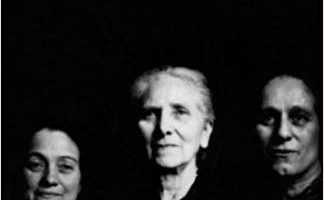How Battered Women Are Threatening Palestinian Culture
It was the morning after the Muslim feast of El-Adha, and Hanan, a 50-year-old mother of five from northern Israel, had done everything an Arab wife was supposed to do. The dishes were washed and put away. The table was set for breakfast. Even the children’s shoes stood in line by the door, waiting for the day to begin.
Hanan took one last look around. She glanced at the bruises on her arms and the welts rising on her legs. Then she did the one thing an Arab wife was never supposed to do. She left the family.
After enduring years of physical abuse by their husbands, women like Hanan (a composite) now have a place to go. Thanks to seven Arab-Israeli women who founded the Association of Women Against Violence in 1992, Israel now has two shelters and extensive outreach exclusively for Arab-Israeli women escaping violence in their homes.
“The first question women ask when they enter the shelter is, ‘All these women have the same problem I do?'” said Aida Touma Suleiman, general director of the Nazareth-based Association. “Each of them, until this point, has felt completely alone. That’s why we wanted the shelter to be all Arab. Israeli Jewish women have one set of emotional and cultural conflicts. But the women who come here see women like themselves. . . . It helps them not to feel guilty for leaving.”
After the founding of the state of Israel in 1948, Arabs in Israel scrambled to preserve a way of life that could survive under Israeli rule. But maintaining this traditional lifestyle has taken its toll. “Arab women withstand a lot of suffering and danger,” Suleiman said, explaining that they often stay with abusive husbands because the family is seen as the last bastion of Arab culture in Israel. “As a national minority we turned inward after 1948, focusing on our culture to sustain us, but the culture is very chauvinistic and patriarchal.”
One of the messages of that culture, Suleiman said, is that any Arab who questions his culture is the enemy. “Arab culture went from dynamic to static because there are so many things considered too holy to talk about.” The Association of Women Against Violence desacrilized one subject with a series of discussions on violence against women in 1992. The response was so overwhelming that one year later it opened the shelter, which has since housed more than 300 women and children. The same year, the Association opened a shelter for young women (15-23); it too soon filled to capacity.
At the core of the Association’s operations is a hotline ran by volunteers who advise women of rights and resources and often just listen. The Association also runs two halfway houses for women trying to launch independent lives after abuse. Although most of the budget comes from international donations, the shelters are partly funded by the Israeli government, and the Ministry of Housing subsidizes women starting life on their own after the shelter
Counselors at the shelters take neither a religious nor a feminist approach. “This is a human rights issue, and that’s how we address it,” Suleiman said. “We help women work out their inner conflict with a culture that doesn’t give [a woman] the right to refuse violence, that says she must tolerate everything for the family name.”
Fatina Hanna, chairperson of the Association and a social worker, has seen countless instances of incest and violence but says even she must be circumspect in order to protect the privacy of those she treats. She is doubly careful when dealing with young women because any hint of trouble can put an end to all prospects of marriage.
A personal status law, proposed by the Association and now moving through the Knesset, would establish Muslim women’s right to choose civil court rather than Muslim religious court—as required by Muslim religious law—in cases concerning marriage, divorce, alimony, custody and inheritance. In the religious Arab world, as in the ultra-Orthodox Jewish community, there is great opposition to weakening the power of religious laws over women’s lives.
“The [new] personal status law threatens the authority of Muslim religious courts, which are one of the last remaining bastions of Arab autonomy in Israel,” said Tagrid Jahshan, a lawyer with the Israel Women’s Network. “Worse, in some eyes, it also threatens family relationships and the integrity of the traditional home.”
“Tradition” is exactly what Suleiman, the director, wants to redefine. “Most people wouldn’t see those of us who work here as traditional Arab women,” she said. “But improving the status of women is the most traditional thing I could do. . . . I’m trying to make a better life for my daughters and the women around me.”
For more information: Association of Women Against Violence, P.O. Box 313, Nazareth, 16000; 06-656-6813.


